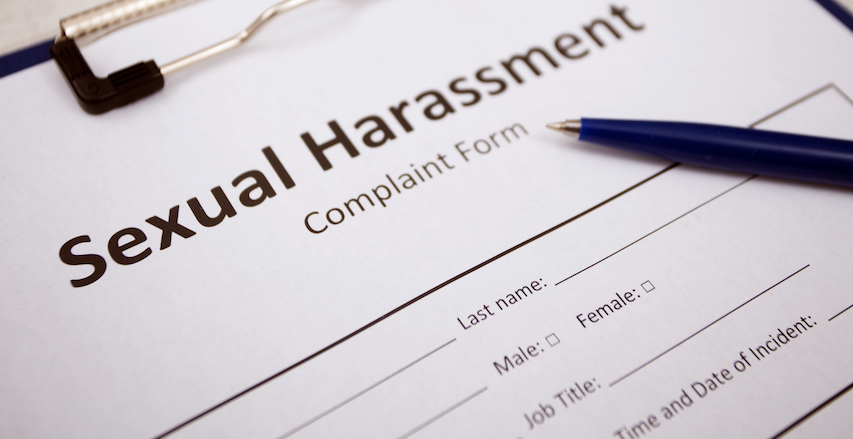Are Hostile Work Environment Complaints Violations of the California Labor Law?
By Jane Mundy
Sacramento, CA Katherine worked at a nutritional supplement company for just two months, but during that time she alleges that management constantly harassed her and several co-workers. She also claims that they are losing "thousands of dollars" from unpaid commissions. Sexual harassment and several forms of discrimination are often obvious violations of the California Labor Law, but Katherine and her co-workers likely need an employment lawyer to advise them if their hostile work environment complaints constitute violations of the California labor code .
 Unpaid Commissions
Unpaid Commissions
"Our company offers nutritional supplements by mail order and their tactics are legally questionable," says Katherine. "We get paid commission on how many customers we 'save' from canceling. When I was hired (October 1, 2008) I was told that I would be paid three dollars a save and was required to make 30 saves a month in order to be employed by the company. Within two weeks of being employed, they changed the minimum saves to 70 a month. They also changed the commission structure so that the employee was making less money. Then on November 1st, with the effective date November 1st, we received a memo changing the commission structure again where we would make less money; this happened two more times. Several of my co-workers lost hundreds of dollars in commission thanks to them changing the commission structure at the end of the month and backdating it to the beginning of them month.
We are also written up randomly even if we make their '70 saves' goal. I made 72 saves last month and was written up (and threatened with termination) for poor performance with my saves even though I met their written guidelines for how many saves were expected of me every month."
In the case Nein v. Hostpro, Inc.. filed 6/3/09 in the Court of Appeal in the State of California, the defendant argued that although commissions are wages under the Labor Code, contractual terms authorizing the commissions must be established before the wages are due. Katherine should study her contract: commission agreements need be carefully analyzed and drafted to maximize the likelihood that a court will uphold the language on which the employer bases its decisions regarding commission payments.
"We are often accused of things we did not do or threatened to be fired if we do not admit to them," says Katherine. " For example, someone left a note on my supervisor's desk. In order to find out who wrote the note, management called several employees they didn't like one by one into their office and accused them of writing the note. They threatened to fire them if they didn't admit to writing the note. This is just one of several things they've done to harass us."
Meal and Rest Breaks
"We are denied pay if we 'forget' to clock in from lunch and work for the hours," says Katherine. "It doesn't matter if the time clock malfunctions or not, they refuse to pay you for the hours you work. I have a memo from HR that states this. They will give people who they don't like "late" lunches. We work 8-5pm. If management does not like you, they will schedule your lunch at 3pm-4pm."
Employees must get a 10-minute break for every four hours worked provided that the work day is at least five hours long, and a 30 minute meal break if the workday is 6 hours or more.
In the State of California, employees can sue for violations of meal and rest break provisions going back a period of three years. In addition, it is likely that employees would be able to go back a total of four years under unfair competition laws. Previously, the DLSE ("California Labor Board") had restricted the claims to only a one year period. (During a five hour work day, an employee is required to receive a 30 minute break. During a ten-hour work day, an employee is required to receive two 30 minute breaks.)
Katherine says that she and several of her co-workers are losing thousands of dollars in commission due to their employer "backdating" the new commission structure. She adds that "management is clearly harassing several employees and myself, creating a hostile work environment. I have several employees who will come forward to attest to this. I also have work memos, copies of write-ups, and the employee handbook." Katherine is now seeking legal help.
 Unpaid Commissions
Unpaid Commissions"Our company offers nutritional supplements by mail order and their tactics are legally questionable," says Katherine. "We get paid commission on how many customers we 'save' from canceling. When I was hired (October 1, 2008) I was told that I would be paid three dollars a save and was required to make 30 saves a month in order to be employed by the company. Within two weeks of being employed, they changed the minimum saves to 70 a month. They also changed the commission structure so that the employee was making less money. Then on November 1st, with the effective date November 1st, we received a memo changing the commission structure again where we would make less money; this happened two more times. Several of my co-workers lost hundreds of dollars in commission thanks to them changing the commission structure at the end of the month and backdating it to the beginning of them month.
We are also written up randomly even if we make their '70 saves' goal. I made 72 saves last month and was written up (and threatened with termination) for poor performance with my saves even though I met their written guidelines for how many saves were expected of me every month."
In the case Nein v. Hostpro, Inc.. filed 6/3/09 in the Court of Appeal in the State of California, the defendant argued that although commissions are wages under the Labor Code, contractual terms authorizing the commissions must be established before the wages are due. Katherine should study her contract: commission agreements need be carefully analyzed and drafted to maximize the likelihood that a court will uphold the language on which the employer bases its decisions regarding commission payments.
"We are often accused of things we did not do or threatened to be fired if we do not admit to them," says Katherine. " For example, someone left a note on my supervisor's desk. In order to find out who wrote the note, management called several employees they didn't like one by one into their office and accused them of writing the note. They threatened to fire them if they didn't admit to writing the note. This is just one of several things they've done to harass us."
Meal and Rest Breaks
"We are denied pay if we 'forget' to clock in from lunch and work for the hours," says Katherine. "It doesn't matter if the time clock malfunctions or not, they refuse to pay you for the hours you work. I have a memo from HR that states this. They will give people who they don't like "late" lunches. We work 8-5pm. If management does not like you, they will schedule your lunch at 3pm-4pm."
Employees must get a 10-minute break for every four hours worked provided that the work day is at least five hours long, and a 30 minute meal break if the workday is 6 hours or more.
In the State of California, employees can sue for violations of meal and rest break provisions going back a period of three years. In addition, it is likely that employees would be able to go back a total of four years under unfair competition laws. Previously, the DLSE ("California Labor Board") had restricted the claims to only a one year period. (During a five hour work day, an employee is required to receive a 30 minute break. During a ten-hour work day, an employee is required to receive two 30 minute breaks.)
Katherine says that she and several of her co-workers are losing thousands of dollars in commission due to their employer "backdating" the new commission structure. She adds that "management is clearly harassing several employees and myself, creating a hostile work environment. I have several employees who will come forward to attest to this. I also have work memos, copies of write-ups, and the employee handbook." Katherine is now seeking legal help.











No Comments